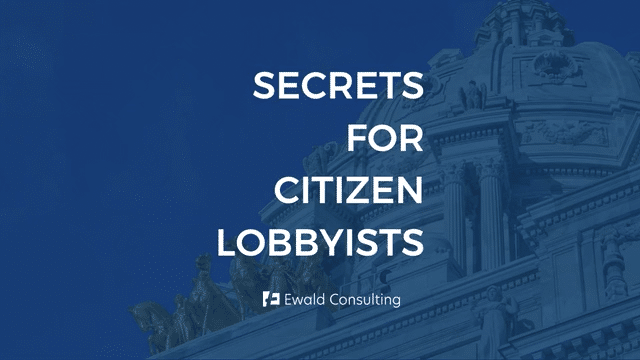Legislature Returns from Break, Omnibus Bills Breakdown, and more
The legislature returned from its week-long break, with six weeks left in the legislative session. They must complete their two-year budget by the adjournment date of May 22. Committees in the House and Senate have been advancing their omnibus budget bills and some budget bills have begun to be debated by the full House and Senate.
Once the budget bills pass off the House and Senate floors, the conference committee process will begin.
A few committees that had yet to act upon their omnibus bills met after the break to pass their budget bills. After these bills pass in their respective bodies, the conference committee process will begin, which is the process the House and Senate use to work out differences. The Tax committees have not yet released their omnibus bills.
Here are a few highlights on budget bills advancing after the legislative break.
Transportation
- The bills include increases in car tabs fees, motor vehicle sales tax rates and a sales tax increase of .75 percent in the Twin Cities Metro area to raise $1 billion each year.
- The House proposal also includes a 75 cent package delivery fee, but the Senate has not expressed support for this provision, so it is unlikely to be included in the final bill.
Taxes
- Tax omnibus bills have not yet been released.
- Senate DFL says the full elimination of the state tax on Social Security benefits will be part of their plan.
- House DFL prefers a smaller reduction to the Social Security tax.
Bonding
- Bonding requires a 60 percent supermajority to pass.
- House Republicans supported a $2.3 billion bonding package earlier in session, which failed to get the necessary votes in the Senate.
- Senate Republicans have pledged they are only willing to pass a bonding bill in exchange for the full elimination of the state tax on Social Security benefits.
- The House and Senate DFL majorities may pass the bonding bill using state aid if there is not a compromise. A bill funded with state aid does not need a 60 percent majority to pass.
Energy
- $255 million for climate and energy committees to spend in the next two years. Incentives for electric vehicles, school buses, and home heat pumps.
- The House and Senate still need to sort out differences on energy storage requirements for electric utilities.
Housing
- $1 billion in mostly one-time funding for public housing, affordable housing, rental assistance, and investments in naturally occurring affordable housing.
Agriculture and Rural Broadband
- $100 million to fund new high-speed internet infrastructure in rural areas.
- $50 million from state bond proceeds for the Rural Finance Authority.
Child Care
- The House Children and Families’ committee bill is split into two parts to pair up with the Senate Education Committee and the Senate’s Health and Human Services bill.
- $370 million to increase the reimbursement rate for the Child Care Assistance Program.
- Funding to increase the pay of child care workers.
- Expanding Early Learning Scholarships.
Local Government Aid
- The House passed a bill to allocate $100 million for Local Government Aid and County Program Aid.
- The Senate has not released a plan yet.
Other top priorities continue to make their way through the committee process:
Recreational Marijuana
- Bills to legalize recreational marijuana have cleared more than 20 committees in the House and Senate
- These are stand-alone bills, not part of other omnibus bills
- The tax rates and license fees (around $100 million a year) will not raise general fund revenue, but instead will cover program costs
Paid Medical and Family Leave
- A proposal to create an insurance program for workers’ sick time and leave to care for newborn children or family members, allocating $668 million from the surplus to get the program running by 2025.
Who represents me?
Governor’s bill tracker
Senate Omnibus and Policy Bills
Governor and Legislature’s Budget Target Agreement
April 19: State of the State address
May 22: Last Day of the 2023 Legislative Session

